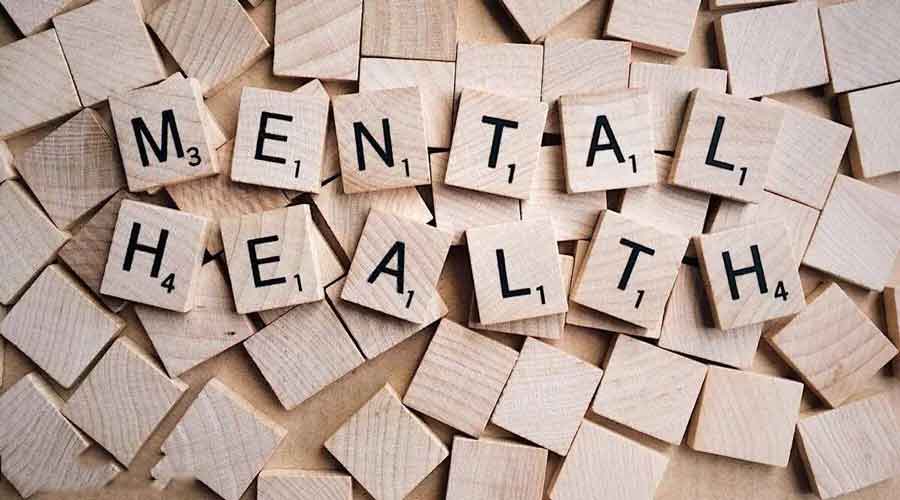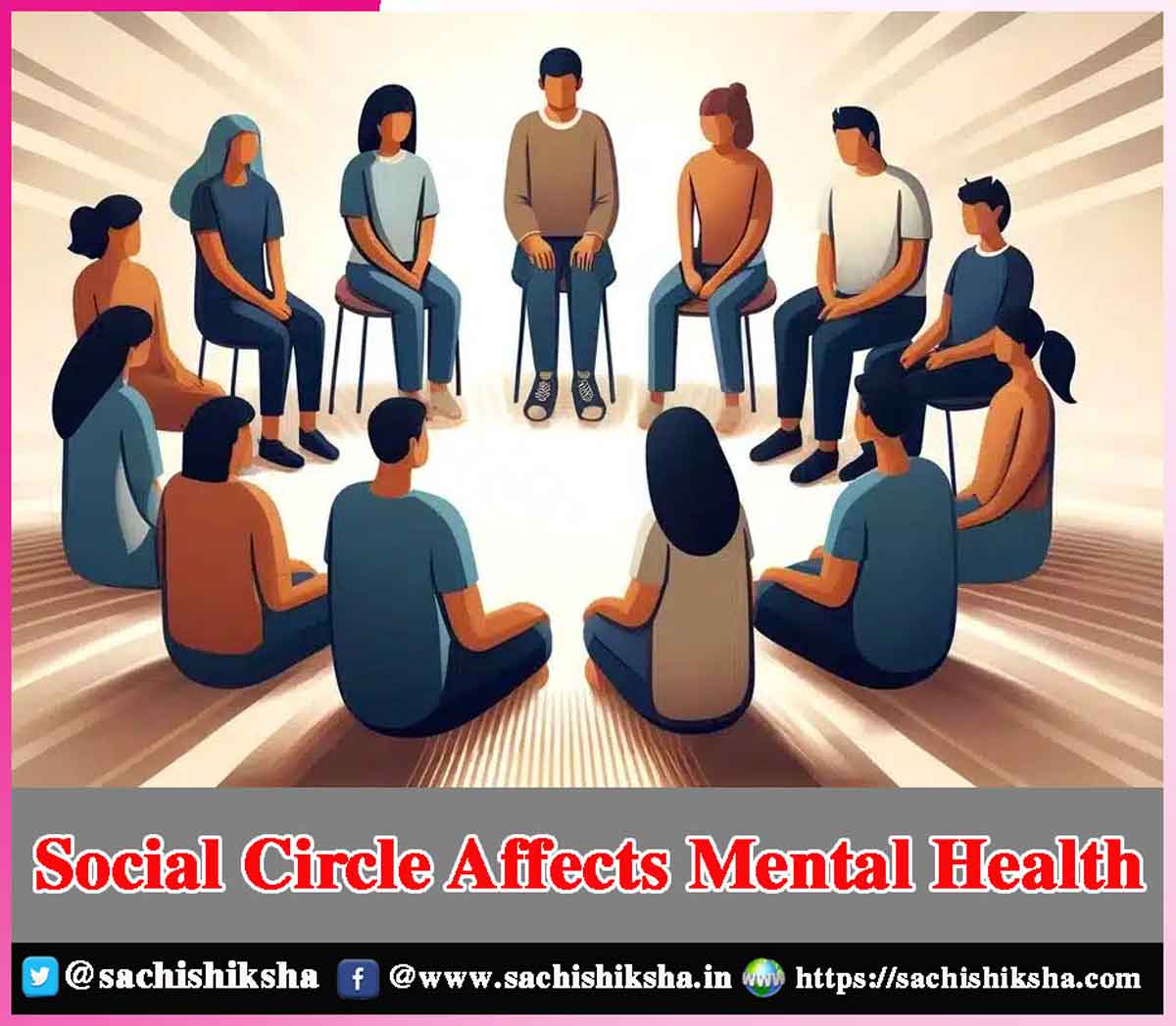Social Circle Affects Mental Health
Introduction : The concept of a social circle encompasses the group of people with whom an individual regularly interacts, ranging from close family and friends to acquaintances and colleagues. These interactions play a crucial role in shaping various aspects of an individual’s life, particularly mental health.

Table of Contents
Positive Impacts of Social Circles on Mental Health
- Emotional Support: One of the most significant benefits of a healthy social circle is the emotional support it provides. Friends and family offer a sense of belonging, understanding, and reassurance during times of stress and adversity. This support can buffer against the effects of stress and help individuals cope with life’s challenges more effectively.
- Reduced Stress and Anxiety: Regular interaction with a supportive social circle can help reduce levels of stress and anxiety. Engaging in social activities, sharing worries, and receiving comfort from loved ones can lower cortisol levels and promote a sense of relaxation and well-being.
- Enhanced Self-Esteem and Confidence: Positive feedback and validation from a social circle can enhance self-esteem and self-worth. When individuals feel valued and appreciated by their peers, it boosts their confidence and contributes to a positive self-image.
- Increased Happiness and Life Satisfaction: Social interactions and meaningful relationships are strongly correlated with higher levels of happiness and life satisfaction. Being part of a supportive community fosters a sense of purpose and fulfilment, leading to improved overall well-being.
- Cognitive Benefit: Engaging in conversations and social activities stimulates cognitive functioning. Social interactions encourage critical thinking, problem-solving, and mental agility, which can help prevent cognitive decline and improve mental acuity.
Negative Impacts of Social Circles on Mental Health
- Peer Pressure and Negative Influence: While social circles can provide support, they can also exert negative influences. Peer pressure to conform to certain behaviours, such as substance abuse or unhealthy lifestyle choices, can lead to detrimental mental health outcomes.
- Social Comparison and Envy: Comparing oneself to others within a social circle can result in feelings of inadequacy, jealousy, and low self-esteem. This phenomenon, often exacerbated by social media, can contribute to anxiety and depression.
- Conflict and Toxic Relationships: Not all social interactions are positive. Conflict, criticism, and toxic relationships within a social circle can cause significant emotional distress. Chronic exposure to such negativity can lead to heightened stress, anxiety, and even symptoms of depression.
- Isolation and Loneliness: Paradoxically, being part of a social circle can sometimes lead to feelings of isolation and loneliness, especially if individuals do not feel understood or accepted. This can exacerbate mental health issues and contribute to a sense of alienation.
The Role of Social Support
Social support is a critical component of mental health. It encompasses various forms of assistance, including emotional support, informational support, and practical help. The presence of social support can mitigate the impact of stressors and promote resilience.
- Emotional Support: This involves expressions of empathy, love, trust, and caring. Emotional support can help individuals navigate through difficult times by providing a sense of security and understanding.
- Informational Support: Sharing advice, information, and guidance can help individuals make informed decisions and solve problems more effectively. This form of support is particularly important during major life transitions or crises.
- Practical Support: Offering tangible assistance, such as financial help, childcare, or transportation, can alleviate burdens and reduce stress. Practical support ensures that individuals have the resources they need to manage daily life.
Social Circles Across Different Life Stages
- Childhood and Adolescence: During childhood and adolescence, the family is the primary social circle. Positive family interactions and supportive relationships with parents and siblings are crucial for healthy emotional development. Peer relationships also become increasingly important, influencing self-esteem and social skills.
- Young Adulthood: In young adulthood, social circles expand to include friends, romantic partners, and colleagues. These relationships play a significant role in shaping identity, providing emotional support, and influencing lifestyle choices.
- Middle Adulthood: During middle adulthood, social circles may shift due to career changes, marriage, and parenthood. Balancing responsibilities and maintaining social connections can be challenging, but strong social support is essential for managing stress and promoting well-being.
- Older Adulthood: In older adulthood, social circles often contract due to retirement, health issues, and loss of loved ones. Maintaining social connections is vital for combating loneliness and depression. Community involvement, hobbies, and family support can enhance quality of life.
Implications for Mental Health Interventions
Understanding the influence of social circles on mental health has important implications for mental health interventions. Strategies to enhance social support and foster positive social interactions can significantly improve mental health outcomes.
- Building Social Skills: Mental health professionals can help individuals develop social skills, such as effective communication, empathy, and conflict resolution. These skills enhance the ability to form and maintain healthy relationships.
- Facilitating Support Groups: Support groups provide a platform for individuals to share experiences, offer mutual support, and build connections. These groups can be particularly beneficial for those dealing with specific mental health issues, such as depression, anxiety, or grief.
- Promoting Community Engagement: Encouraging community involvement and participation in social activities can help individuals expand their social circles and build a sense of belonging. Volunteering, joining clubs, and attending community events are effective ways to foster social connections.
- Addressing Social Isolation: Interventions aimed at reducing social isolation, such as outreach programs for the elderly or initiatives to integrate marginalized individuals, can significantly improve mental health. Providing access to social opportunities and support services is crucial.
- Integrating Technology: Leveraging technology, such as social media and online support groups, can help individuals connect with others, especially when face-to-face interactions are not possible. However, it is important to balance online interactions with real-life connections to avoid negative effects.
Conclusion
The influence of social circles on mental health is profound and multifaceted. Positive social interactions and support systems play a crucial role in promoting mental well-being, enhancing self-esteem, and reducing stress. Conversely, negative influences, social comparison, and toxic relationships can harm mental health. Recognizing the importance of social support and fostering healthy social connections are essential components of effective mental health interventions. By understanding and addressing the complex dynamics of social circles, we can better support individuals in achieving and maintaining optimal mental health.














































